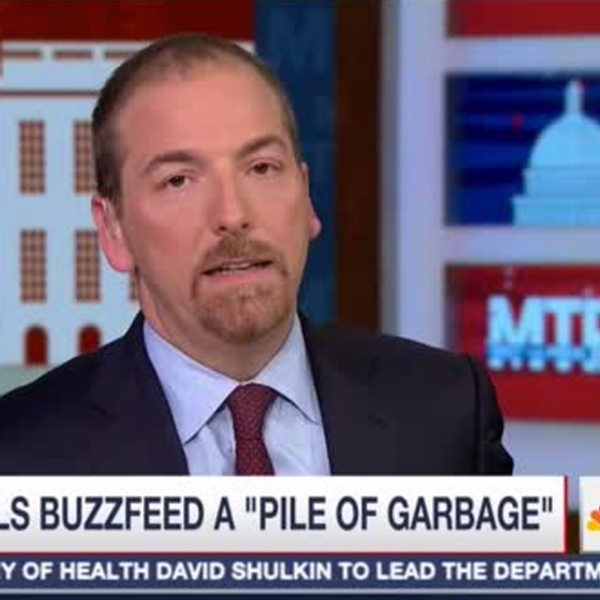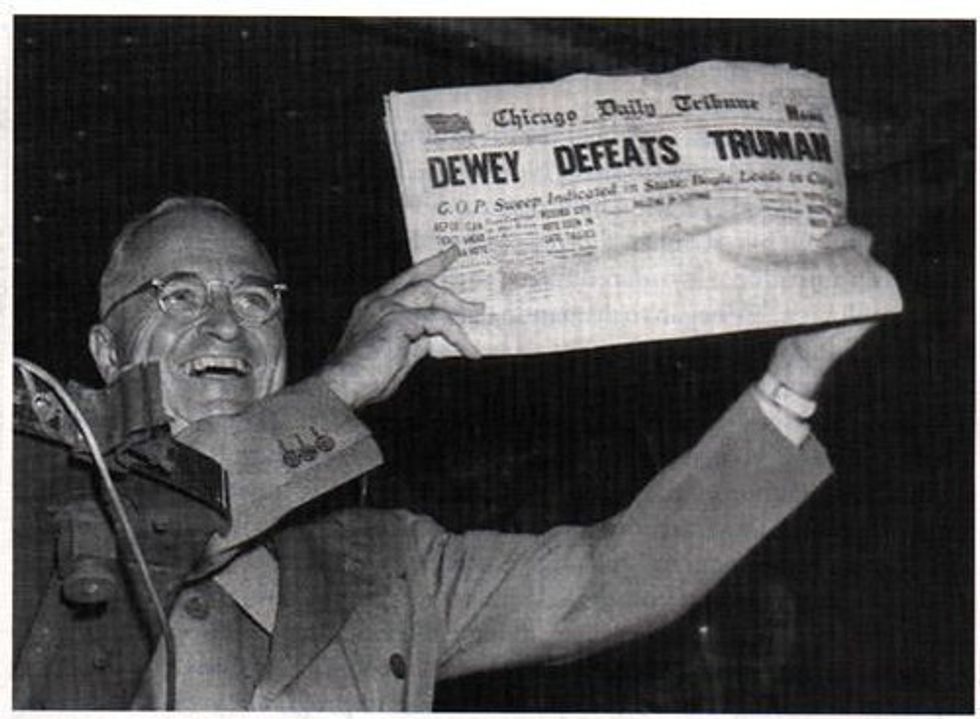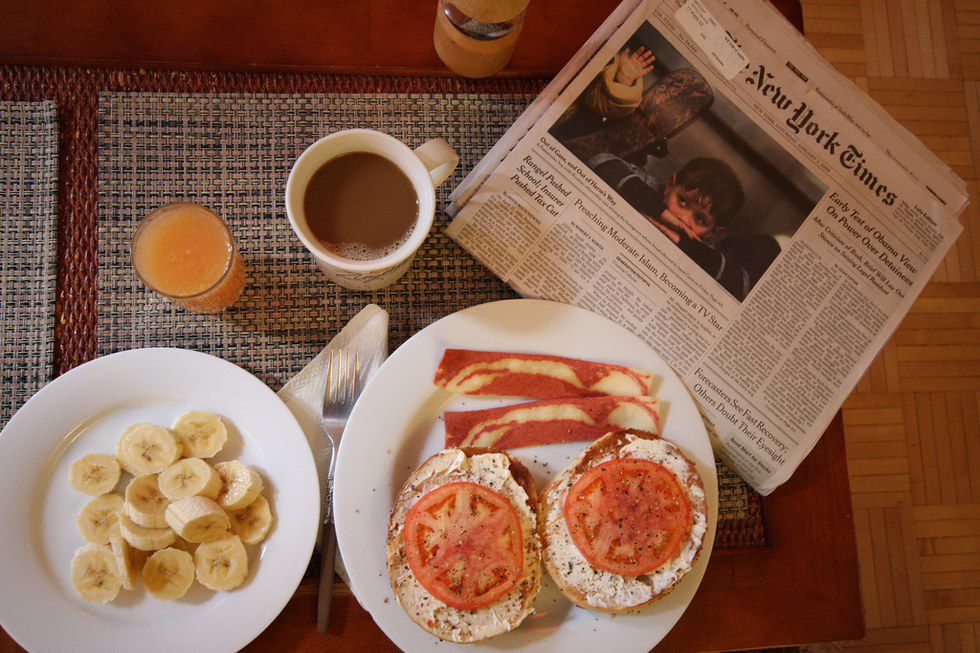The print newspaper is an American institution. Since the times of the Revolution, it has been an essential part of American politics and culture. From Benjamin Franklin's publication the Pennsylvania Gazette to the famous "Dewey Defeats Truman" gaffe of the 1948 presidential election, the newspaper has been at the forefront of American history. Unfortunately, it seems that the faithful appearance of the morning paper on America's doorsteps is a dying tradition. While it is certainly true that a number of national publications are living on in a digital format, not every one of the 1,000+ daily publications is of the caliber of the New York Times or Boston Globe. Many smaller local papers have been forced to downsize or stop their presses entirely. My own local paper has recently been forced to lay off several employees, with more expected soon.
There was a time when most print shops published both a morning and an evening edition of their newspapers to be distributed for the people. Over the years, publication after publication ended their tradition of offering an evening paper. The rise of TV news outlets saw to that. Now, digital media is slowly killing print media. It seems like a foregone conclusion and has even been a central vehicle in an episode of the satirical Netflix comedy Bojack Horseman. But the end of the print newspaper is in actuality a very bad thing for our culture and country, and I've provided three key reasons why.
1. It's creating a generational information gap.
Older generations of Americans read newspapers at a rate as high as twice that of the under 35 crowd. This is not necessarily to say that older Americans are more in the know about current events than their posterity, but rather that different demographics are in the know on different events, written from different perspectives, using different facts and opinions. Speaking anecdotally, I know that this information gap is more common in small towns and rural parts of America, where certain millennials are likely to be significantly more liberal than their parents and grandparents. Many smaller print publications tend to have a conservative bias, while younger generations tend toward liberal online media.
In the past, this separation of information would not have been so prominent, as the newspaper was the only source of information available to everybody. Young and old alike would have relied on the same sources of information, and would have been able to discuss current events and political opinions with each other. Instead, as younger generations move away from print publications to form and subscribe to their own sources of information, they only create forums specifically among similar people who agree with them. This election cycle has revealed how a growing information gap among voters can exacerbate differences among demographics.
2. It takes away a source of consistency in people's day to day lives.
Ask anybody, and they'll tell you that having a routine is a very important part of living a healthy life. For hundreds of years, people have been able to incorporate their morning paper into that daily routine. There is even a moment in that episode of Bojack Horseman I mentioned where a character describes the daily paper as a steady presence, something you can count on day in and day out. It also allows individuals to start their day refreshed and well caught up on current events. I know plenty of older people who start every morning with the newspaper and a nice full breakfast.
Unfortunately, we now live in a world where everything must be happening all the time. People are no longer sitting down to catch a breath and catch up on the latest news. Instead, people will maybe read a quick article on their phones during a coffee break or while riding the subway on their way to the office. They are no longer trying to maintain a steady routine and are sporadically reading on their phones and tablets when they "have time" instead of making the time to sit down and unfurl a paper themselves.
3. It's created job losses around the country.
When talking about employment numbers in our country, manufacturing industries tend to make the headlines above all else, but the newspaper industry has been quietly suffering as they continue to toil away to provide us with our daily news. As print newspapers make way for digital news sources, revenue continues to plummet and jobs continue to become lost and consolidated. The highest newsroom employment numbers in recent history peaked at around 55,000 in 2006. Since then, employment has been in a nose-dive, with a net loss of 3,800 editorial jobs in 2014 alone. This is bad, not only from a direct economic perspective but from a forward thinking outlook perspective. Digital news outlets require far fewer employees and don't rely on technical experts who can operate and maintain the presses in the print room itself. This will only discourage children and young adults from seeking careers within the industry, which will continue to cause the industry and the quality of news that it can provide to atrophy.
Such a dramatic drop in available employment also relates back to the aforementioned information gap. As newsrooms continue to downsize and close altogether, younger journalists who are just now entering the workforce are struggling to find positions in established offices. Newspapers instead are opting to retain only a few writers and editors that may have offered the same perspective for several decades. While retaining employees with proven track records is important, it is just as important, if not more so, in journalism to provide new perspectives for readership. As a result, older readers who stick to their print publications rely on the same people for their news for years, while younger writers struggle to find work within a flooded job market that is unable to put necessary value in fresh perspectives. Without new writers, there is little incentive for younger readers to subscribe to their local print publication, who then continue to migrate solely to digital media.
So, if you don't make picking up a newspaper part of your morning routine, or at least your lunch time routine, I suggest you do so. I know that most convenience and grocery stores sell newspapers, and if you're in college, there are probably newspaper stands lying about on campus. My school had stand upon stand of New York Times issues, but the only time I ever saw them used were by art students who never bothered to read the papers before destroying them for a project. Let's try to change that habit together, and keep the American tradition of the newspaper alive.























